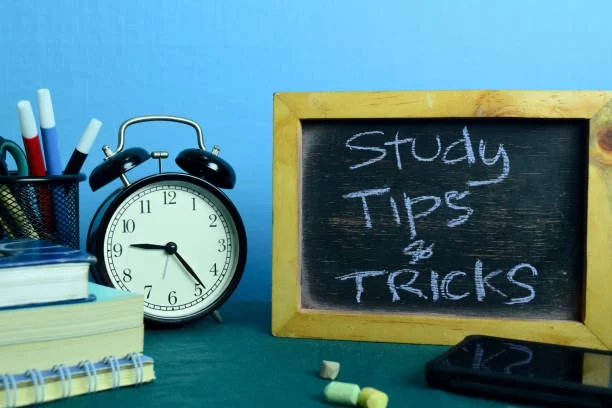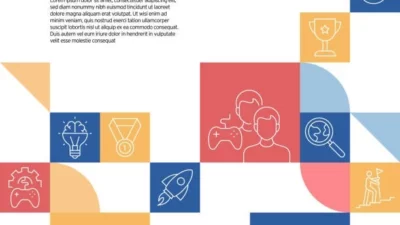Preparing for final exams can feel like running a marathon—intense, exhausting, and sometimes overwhelming. Whether you’re juggling multiple subjects, balancing work and study, or simply struggling to keep motivation high, the right strategy can make all the difference. If you’re thinking, “I wish someone could just take my exam for me,” you’re not alone—but mastering these proven techniques will help you conquer your finals with confidence and earn that well-deserved good luck for final exams wish from friends and family.
Let’s move on to the 10 expert study tips & tricks
1. Craft a Smart Study Schedule
A scattergun approach—cramming the night before—backfires more often than not. Rather, create a study plan that divides each topic into digestible portions:
- Reverse-engineer from exam dates. List every final, then work backward to plot daily or weekly targets.
- Time-block your calendar. Allocate specific 45–60 minute slots per topic, followed by 10–15 minute breaks.
- Mix subjects each day. Switching topics refreshes your focus and leverages spacing effects for better retention.
By staking out a clear timetable, you reduce anxiety (“What should I study next?”) and guarantee you touch on every critical area before exam day.
2. Embrace Active Note-Taking
Passive reading or listening isn’t enough. Transform your notes into active learning tools:
- Cornell Method:Each page should be divided into “Cues,” “Notes,” and a summary at the bottom using the Cornell Method. After class or reading, condense ideas into questions in the cue column—then quiz yourself.
- Mind Maps: For concept-heavy courses (e.g., biology or history), sketch diagrams linking key ideas. Seeing relationships visually solidifies understanding.
- Flashcards: Especially for definitions, formulas, or vocabulary. Digital apps (Anki, Quizlet) let you carry study aids in your pocket.
Active notes force you to process information, not just record it—so on exam day, you’ll recall facts and explain concepts smoothly.
3. Simulate Real Exam Conditions with Practice Tests
How well you do on practice tests is one of the best indicators of exam success:
- Set a timer. Mimic time pressure exactly.
- Eliminate distractions. Turn off notifications; find a quiet space.
- Review errors immediately. Identify patterns (e.g., misreading questions, calculation slips) and address them.
Frequent, timed practice shrinks test-day nerves and highlights areas needing further study. Plus, practice tests often mirror the exam’s structure—so you won’t be thrown by “curveball” question formats.
4. Leverage Active Recall and Spaced Repetition
Two evidence-backed study strategies:
- Active Recall. After reading a chapter or listening to a lecture, close your notes and recite everything you remember. This strengthens neural pathways.
- Spaced Repetition. Review every subject at progressively longer intervals (1, 3, 7, etc.). Spacing out reviews beats massed cramming by a mile.
Apps like Anki automate spaced repetition for flashcards, but you can also DIY—set calendar reminders or use colored stickers to mark how soon you need to re-review each topic.
5. Optimize Your Study Environment
Your study area has the power to make or break your concentration:
- Minimalist setup. Clear the clutter—only keep your current textbooks, notes, and a water bottle.
- Good lighting. Natural daylight helps reduce eye strain; add a desk lamp for evening sessions.
- Comfort plus posture. A supportive chair and upright posture fend off fatigue (and back pain!).
Consider rotating spots—library one day, a coffee shop the next. New environments can reignite focus and break monotony.
6. Build in Breaks and Self-Care
Nonstop work leads to burnout. Schedule active breaks:
- Pomodoro Technique. Study 25 minutes, break 5 minutes; after four cycles, take a longer 15–30 minute break.
- Movement. Stretch, do a few jumping jacks, or take a quick walk—physical activity recharges your brain.
- Mindfulness. Short breathing exercises reduce stress, sharpen concentration, and improve mood.
Don’t neglect sleep, nutrition, or social time—your brain needs downtime to consolidate what you’ve learned.
7. Harness the Power of Group Study
Studying with peers can plug knowledge gaps and reveal new insights:
- Teach each other. Explaining a concept aloud forces clarity—and uncovers any shaky understanding.
- Divide and conquer. Assign each member a chapter or topic; then rotate “expert” roles to teach the group.
- Practice Q&A. Quiz each other with flashcards or spontaneously recall key points.
Keep groups small (3–4 people) to avoid off-topic chatter. The goal is active exchange, not socializing.
8. Use the “Feynman Technique” to Simplify Complex Ideas
Physicist Richard Feynman championed an approach to learning:
- Pick a concept. Put it at the top of a page that is blank.
- Explain it in simple language. Pretend you’re teaching a novice.
- Identify gaps. Any point you can’t clearly explain highlights what you need to review.
- Refine and rephrase. Simplify further, use analogies, and solidify your mastery.
This technique forces you to digest complicated material into everyday words—an invaluable skill for essay-style or open-ended exam questions.
9. Tackle Exam Anxiety Head-On
Even well-prepared students get jittery. Combat anxiety with:
- Visualization. Imagine walking into the exam room, breezing through questions, and handing in your paper with confidence.
- Positive self-talk. Replace “I can’t do this” with “I’ve studied this thoroughly—I’ve got this.
- Breathing drills. Slow, controlled breaths (inhale 4 seconds, hold 4, exhale 4) calm your nervous system in minutes.
Remember: a bit of adrenaline sharpens alertness. Channel nerves into positive focus rather than letting them spiral.
10. Review, Reflect, and Fine-Tune on the Final Day
The 24 hours before your exam aren’t for marathon cramming—they’re for strategic review:
- High-yield flashcards. Go over your toughest flashcards or the 10–15 most critical formulas/concepts.
- Quick summaries. Reread your mind-maps or Cornell summaries—no new material.
- Logistics check. Confirm exam time, location, permit needs, and pack (#2 pencils, calculator, ID).
End with a brief self-reflection What questions are you most confident about? Which areas could use a final glance? Calibrate your last-minute focus accordingly.
Conclusion
By following these proven study strategies—smart scheduling, active recall, realistic practice tests, and self-care—you’ll turn that good luck for final exams wish into a well-earned reality. Need an expert edge to make sure nothing’s left to chance? Why not see how Scholarly Help can bolster your prep. Good luck on your finals!

Lexy Summer is a talented writer with a deep passion for the art of language and storytelling. With a background in editing and content creation, Lexy has honed her skills in crafting clear, engaging, and grammatically flawless writing.



